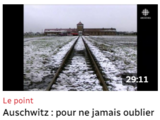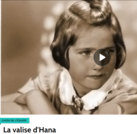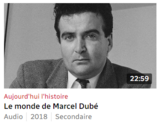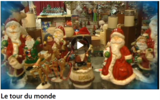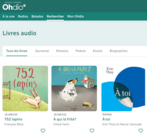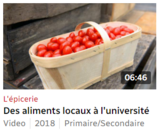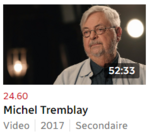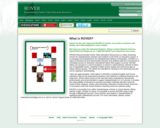Three Saskatchewan people recovering from gambling addiction are describing the wild swings, losses and sacrifices that came with their previous lifestyle — but also their improved quality of life since distancing themselves from it.
According to a recent Statistics Canada study of data gathered in the 2018 Canadian Community Health Survey–Gambling Rapid Response, the Prairie provinces had the highest percentage of past-year gamblers at moderate-to-severe risk of gambling problems at 2.5 per cent. The national average was 1.6 per cent.
The rate among men in the Prairies was 2.7 per cent — and 2.2 per cent among women. The national rates were two per cent and 1.2 per cent, respectively.
The same analysis pegged the percentage of Saskatchewan men who had gambled in the previous year at 76.9 per cent, tops in Canada. The national average was 68.8 per cent.
CBC News agreed to grant anonymity to three men who have been taking part in Gamblers Anonymous Saskatchewan meetings.
"Wade," who said he is recovering from an addiction to online gambling, said he began gambling as soon as he was old enough to get his first credit card, adding he was influenced by stories of big wins by friends who played VLTs.
"I guess being young and naive, I suppose that they only seemed to ever tell me about the times they won," he said.
Wade said he would play blackjack and slots online and once turned $1,000 into $74,975 — before losing it all in an attempt to win $25 more to make it an even $75,000.
He said he got "tunnel vision" trying to win the money back, adding it happened very fast, especially since it was online.
"You're there by yourself. There's no one watching," he said. "And before you know it, it's all gone because you don't have that ability when you're dealing with an addiction to really comprehend what's happening."
No win large enough to quit
Wade said that loss was the "big turning point" for him, because he realized there was never going to be a win large enough to satisfy him.
"If I looked at all the money I ever gambled, I probably would have been up money at that point," he said. "If that's not enough, then there's never going to be something that's enough. It could be a $1,000,000 win."
He said he was also sick of worrying about bills and not being able to do things because he had no money.
"It was just a vicious cycle of get paid, blow it all immediately, wait two weeks, get paid, blow it immediately, over and over again," he said.
Conservative MP says Sask. government has 'dropped the ball' on single-event sports betting
He said he bought a program that blocks any sort of gambling website from his IP address — and also went to his first Gamblers Anonymous meeting last summer. He said he stuck with it for four months, had a two-week relapse, then took his recovery more seriously.
"All the bad things that I had felt and remember doing and the times I had lied to people that I cared about, they just came rushing back," he said. "It's like, 'Do I really want to throw away all the good things that I had going on in my life to play a couple of hands of blackjack?'"
Wade said the positive changes in his life have not all been financial.
"All the little things in my life," he said. "You're a better friend, a better employee. You don't feel as angry all the time and that the world is out to get you."
Recovering sports gambler recalls 'heavy swings'
"Trevor," who said he is recovering from a sports gambling addiction, said he started betting on sports when he was about 20 years old, but that his gambling started when a casino opened in his community.
He said he started playing blackjack and poker, then moved to sports betting, initially playing Sport Select Pro-Line for several years before moving to online gaming on offshore sites. That's when he started betting almost every day, and for bigger and bigger amounts.
"There was heavy, heavy swings, both positive and negative," he said. "It began a lot more to control my day. And it was never-ending."
Responsible gambling advocates keeping eye on increasing 'normalization' of sports betting
Trevor said he has likely bet more than $10,000 on a single game 50 times in his life.
He said his income and credit allowed him to have big swings where he would be up $100,000 in a week from his betting — and by the end of the week or the following week, he would be down $20,000.
"I'd be up $25,000 in a day," he said. "And the next day, I'd lose $30,000."
"I remember one day I made just over $10,000 betting on baseball online, and lost it all in about seven minutes playing blackjack online," he said.
Trevor said getting into more debt makes it harder to quit.
"You don't want to admit that the money's gone," he said. "It's just borrowed to somebody else for the time being and you can get it back."
Trevor said he and a counsellor have since estimated that over his life he had wagered between $4 million and $5 million, including money from wins.
Crisis point
Trevor said his breaking point came when he lost his job while saddled with a heavy mortgage, which put him in a "very, very bad place" with depression and anxiety.
His wife didn't know the extent of his gambling, but ended up taking him to the hospital.
"My plan was I was going to take off. I was just going to run away. I was going to go to the States," he said. "Didn't know exactly where I was going.
"I went and I said goodbye to my youngest daughter and I packed my car. My wife wasn't supposed to be home and she was."
Someone at the hospital advised him to tell his wife what was going on. He said it took about a week to tell her everything.
Sports gambling has victims — and they are typically highly educated young men
Trevor said he attended his first Gamblers Anonymous meeting in December 2019, two days after his last bet.
He said his wife had begun asking him every day if he had made any bets.
"I got to the point that at least I was answering her honestly," he said. "I remember that day she'd asked me and I'm like, 'Yeah, I went three-for-four today.'
"And she got up and walked upstairs and went and laid in our room."
He said he then closed the betting account that he used, gave his wife access to all of his cards and has been attending Gamblers Anonymous meetings ever since.
He said his life is much more peaceful, he sleeps much better and he doesn't have to worry about his wife checking his phone.
"Just being present in the moment when I'm with my family versus worrying about what game I'm going to bet on or what's going on with the game that I have bet on," he said.
'Gambling owned me'
"Mike," who said he was recovering from an addiction to VLTs, said he started gambling at the age of 14 when he was working at a racetrack and continued to gamble for 34 years.
"As a 14-year-old, I won constantly because guys would tell me when the longshots were going to win and I'd give them money and they'd give me a whole bunch more," he said.
"Progressively, what happened was I would gamble off and on most of my life."
He said a friend introduced him to VLTs in 1994 and "I was definitely hooked."
"The one thing that I learned was gambling owned me. I had no control once I started playing. No control whatsoever," he said.
Provincial coalition of gaming agencies calls on bettors to avoid illegal gambling sites
Nearly two-thirds of Canadians 15 and up report gambling, data shows
Mike said he exhausted all the money that was in his business at the time.
"It was very successful. But I destroyed it. And fortunately to the point that I had no choice, I had to quit gambling. I just didn't have the funds to continue on," he said.
"The money drain was incredible. Absolutely incredible."
He said he had also been caught by a friend who told his wife what was going on, which forced him to take steps to stop his gambling.
Road to recovery
Mike said he hasn't gambled since he went to his first Gamblers Anonymous meeting in 1998, but that he had a $250,000 tax bill to settle with Revenue Canada (now the Canada Revenue Agency) and couldn't declare bankruptcy because of the value of his home.
He said he reached a settlement with the agency, but also started another business and took on a second job.
"I worked very, very hard for a long time," he said. "But I was able to sell that business almost six years ago for quite a bit of money and was able to retire a little less than five years ago."
If you or someone you know is struggling with problem gambling, you can call the Saskatchewan Problem Gambling Helpline at 1-800-306-6789.



